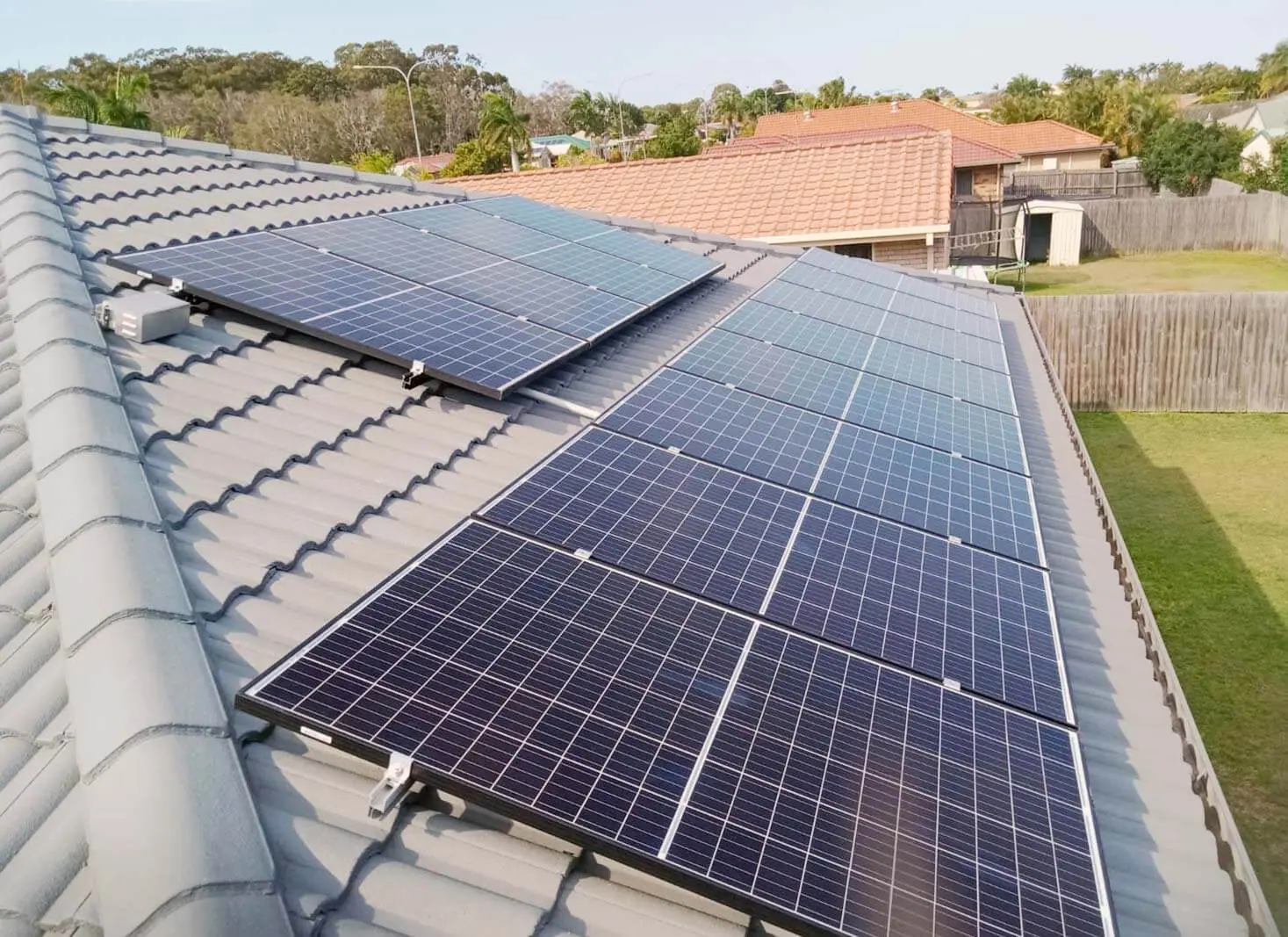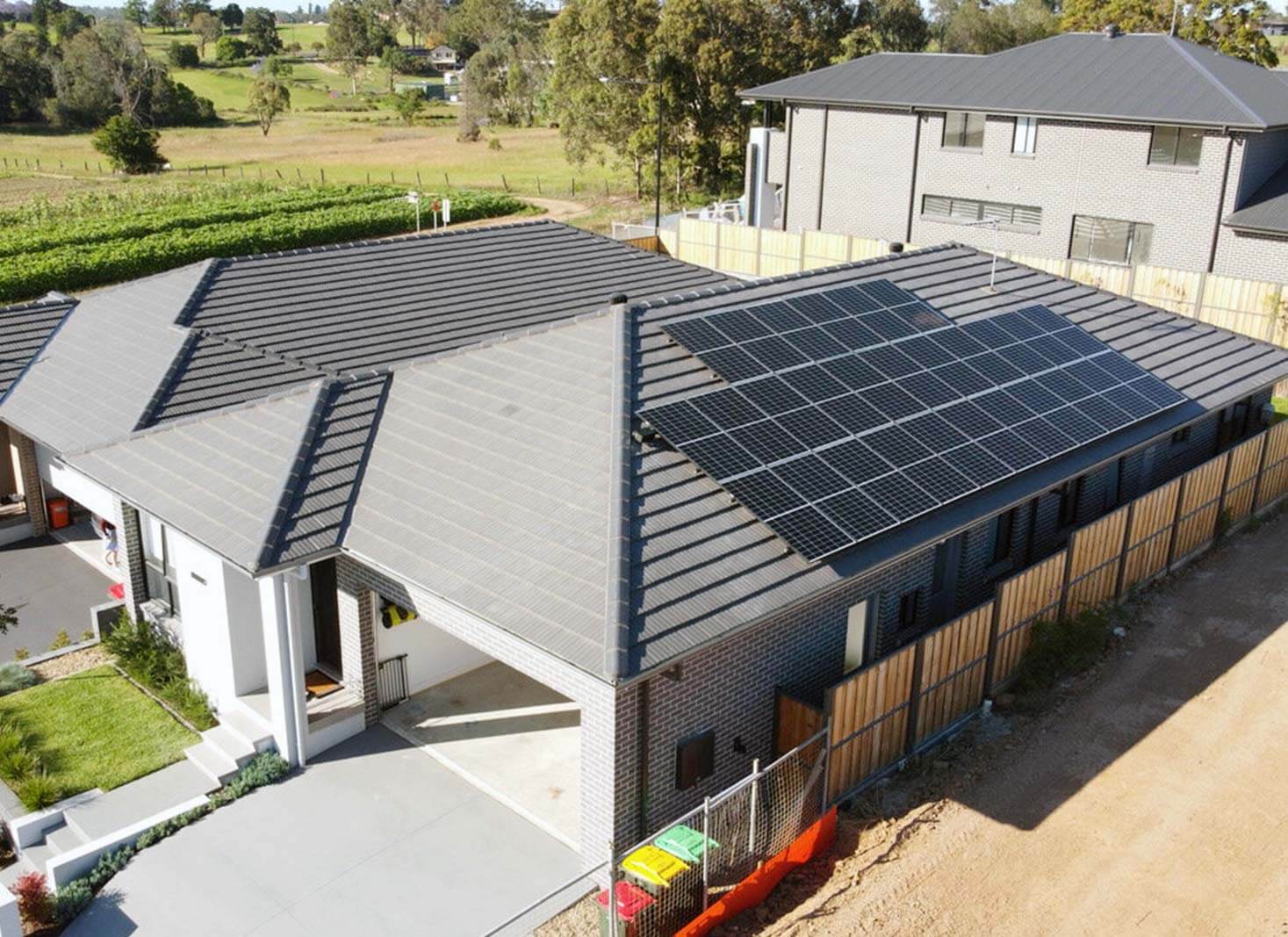Home How To Run a Fridge on Solar Power
How To Run a Fridge on Solar Power
Currently, adopting eco-friendly habits and minimising electricity consumption is highly fashionable, with harnessing solar power for appliances such as refrigerators becoming extremely trendy. If you’re keen to contribute positively to environmental conservation or simply wish to enjoy a cold beverage without relying on conventional power sources, choosing solar-powered refrigerators is an excellent and sustainable choice.
Fridges need a steady supply of electricity to maintain the freshness of food. On average, a fridge consumes around 1001 Watts every hour, which totals to approximately 2.4kW daily.
To run a fridge on solar power, you can install a tiny 4-panel, 1.5kWh solar system (6kWh output daily). With a grid-tied system, you can send excess power to the grid during the day, and get credits to draw on that power at night.
In fact, you can even run lights and a couple of LCD televisions on this system with no problem. But why stop there?

Table of Contents
ToggleThe solar power setup suitable for a fridge
A solar power system suitable for running a refrigerator requires a 1.5kW2 system which is either grid-tied (with feed-in tariff) or with a backup battery.
Solar panels: To produce the energy required to run a standard fridge/ freezer you need at minimum of 1 – 1.5kW solar system setup. This would require 4 x 375 Watt panels mounted on your roof with an inverter and an optional battery storage pack.
A solar inverter: The inverter converts low-voltage direct current (DC) power into higher-voltage alternating current (AC) power that the fridge can use. They are standard with all solar installations.
Solar feed-in tariff: Maximize your solar investment with a solar feed-in tariff. Instead of investing in costly battery storage, consider leveraging your electricity provider to pay you for the excess power you supply to the grid. This way, you can utilize the grid as a virtual battery, allowing you to run essential appliances like your fridge even during nighttime hours. Save on initial setup costs and harness the power of renewable energy to keep your home running efficiently day and night.
A battery system: You can opt to store excess energy produced during the day to use at night when the solar panels are not generating power. This ensures you keep running your fridge and other appliances at night. Most solar batteries provide enough current to run a refrigerator and other electrical devices.
How much solar power do I need to run a fridge?
This will depend on the size of your fridge. The average fridge/ freezer consumes 2,800 Watts per day. A 1kWh system will produce 4,000 Watts of power during the day, more than enough to run your fridge for 24 hours.
If you’re running a portable fridge, use the following formula to determine the number of panels needed.
Formula:3
Hourly consumption of power x 24 hours = Total power needed in Watts.
A single 500W solar panel will produce 2kWh or 2,000 Watts4 per day. This is more than enough to run a small portable fridge.
You’ll just require a consumption controller and a backup car battery.

How much energy does a fridge use?
A refrigerator uses up to 7%5 of your home’s electricity and requires about 880 kWh annually. This translates to about 2,400 Wh (2.4 kWh) of electricity per day, or approximately 100 watts of electricity per hour.
On average, a home refrigerator consumes 300-800 watts6 of electricity, depending on the size and type of model. Larger home refrigerators typically demand 200-400 running watts and 800-1600 starting watts, commonly found in both residential and commercial settings. On the other hand, average home refrigerators typically utilize 100-250 running watts and 500-1000 starting watts to function effectively.
Small home refrigerators typically consume between 75-150 watts while running, with starting wattages ranging from 400-600 watts. An average solar power generator can effectively keep your small refrigerator powered for extended periods. Similarly, mini coolers or fridges require approximately 50-100 running watts and 200-400 starting watts to operate efficiently.The exact amount of solar energy required will depend on your fridge’s power consumption and location (peak sun hours you receive per day).
The amount of energy a fridge uses per day mainly depends on its size. Here is a table showing the average power consumption of different refrigerators of different sizes.
| Model | Size in cubic feet | Estimated annual power consumption (kilo-Watt-hours) | Estimated daily power consumption (Watt-hours) | Estimated solar power needed (Watts) |
|---|---|---|---|---|
| Samsung’s 27.4 Cu. ft. refrigerator | 27.4 Cu. Ft. | 728 kWh per year | 1,994 Wh per day | 300 - 500 W |
| Kenmore 51783 | 20.6 Cu. Ft. | 653 kWh per year | 1,790 Wh per day | 300 - 500 W |
| Frigidaire FFHT1425VV | 13.9 Cu. Ft. | 332 kWh per year | 909 Wh per day | 150 - 300 W |
| Galanz GLR12TRDEFR | 12 Cu. Ft. | 312 kWh per year | 854 Wh per day | 150 - 300 W |
| Kenmore 99059 | 4.5 Cu. Ft. | 237 kWh per year | 650 Wh per day | 100 - 200 W |
There are more power-efficient fridges, so the electricity consumption rate can change as you upgrade to newer technologies and better efficiencies. Newer models of refrigerators come with EnergyGuide labels that estimate the annual power consumption of the fridge.
Installation and Setup
Installing a solar-powered fridge system requires careful planning and execution:
Panel Placement: Install solar panels in a location with maximum sunlight exposure, preferably facing south and tilted at an angle to optimize solar absorption.
Battery Bank Setup: Connect deep-cycle batteries in a series or parallel configuration, depending on voltage and storage capacity requirements. Ensure proper wiring and safety precautions during installation.
Charge Controller and Inverter Installation: Mount the charge controller and inverter in a well-ventilated area near the battery bank. Follow manufacturer instructions for wiring and setup to ensure optimal performance and safety.
Does fluctuations in power affect the power usage of a fridge?
Yes. Typically, the amount of energy a fridge uses depends on its operating conditions. If the ambient temperature of a room is cool or if there are several cold items in the refrigerator, it will stay cool for a longer time. Thus, it will not need to turn on as often, which means less power will be used.
On the other hand, if the ambient room temperature is high due to poor ventilation or hot weather, the fridge will need more power to keep the food items cool and fresher for longer.
When the refrigerator’s air compressor starts up, it requires a power surge that uses up to three times the normal running current. This surge, however, happens only for a fraction of a second, and the fridge goes back to using power according to its nameplate voltage and current.
FAQ's
The short answer is yes. The energy requirements of a home refrigerator fits into the energy output of your home’s solar systems, even the small ones.
Refrigerators are among the most energy-intensive appliances in the home, so it makes sense that many homeowners are always looking for alternative electricity sources to run them, with solar power being the best option.
Yes, you can run a 12v fridge off a solar panel. Besides the wattage of the refrigerator, the duration depends on the size of the panel, wattage, and your overall power consumption. A 12v fridge is a mini fridge that will need between 200 and 400 watts of solar PV panels to run. A solar array of this size requires 2 to 4 100-watt 12 volt solar panels or 1 to 2 200-watt 12 volt solar panels.
No, you cannot connect your 12V fridge directly to a solar panel. You will, however, need to store the solar energy generated by the solar panel in a 12 V battery, then power the refrigerator off the battery system. A solar charge controller will be needed to connect the solar panel to the battery to avoid damaging the battery.
Yes, a 300-watt solar panel should be able to produce enough power to run a small fridge with low power consumption.
That will depend on the size of the refrigerator and battery. For instance, a battery system with a capacity of 10 kWh can run a fridge for about 14 hours.
- Ryan McCarthy, (2019), How Much Power a Fridge Uses – in Watts, Cost & kWh, Accessed on: 15th April 2024, https://reductionrevolution.com.au/blogs/how-to/fridge-power-consumption
- Plowman92 , (2019), Problem running small fridge, Accessed on: https://forum.solar-electric.com/discussion/354663/problem-running-small-fridge
- Caitlin Ritchie, (2023), Understanding Your Energy Usage, Learn how to calculate power consumption by kWh per month. Accessed on: 15th April 2024, https://www.saveonenergy.com/resources/energy-consumption/
- Usman Noor, (2023), How much energy can solar panels produce? Accessed on: 15th April 2024, https://8msolar.com/how-much-energy-can-solar-panels-produce/
- EIA,(2018), EIA’s residential energy survey now includes estimates for more than 20 new end uses, Accessed on: 15th April 2024, https://www.eia.gov/todayinenergy/detail.php?id=37813
- Jackery, (2023), Solar Refrigerator vs. Solar Generator for Refrigerator, Accessed on: 15th April 2024, https://www.jackery.com/blogs/buying-advice/solar-generator-for-refrigerator#:~:text=Small%20home%20refrigerators%20require%2075,and%20200%2D400%20starting%20watts.
Table of Contents
Toggle




